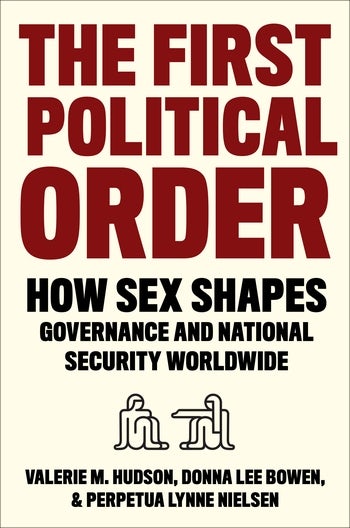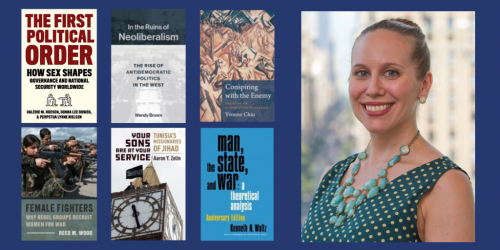How the State Can Ensure Gender Equality: Sex and World Peace

“It is time, then, for power and responsibility to be married by states. Caregiving must count—really count—in the perspective of national governments.”
In their book Sex and World Peace, the authors offer some top-down approaches to ensuring the security of women. This recommendation looks at how government can make women more economically secure. (Tomorrow we will look at bottom-up suggestion):
Keep Caregiving Economically Rational
Whether fair or not, most of the reproductive work that takes place on earth is performed by women…. [T]his makes women very economically vulnerable. Abused women may feel they have no choice but to remain in an abusive situation because of the difficulties involved in trying to take care of dependents, whether these be children or the sick or the elderly, and also bringing in an income that will support their family. One of the most important roles government can play in the life of women is to promulgate initiatives that help level the uneven economic playing field faced by women, thus diminishing the irrationalities they experience as caregivers.
As we have seen, one important component of this effort is to ensure that both parties have similar standards of living after divorce, or after the death of a husband. When divorce or widowhood thrusts women and children into poverty, abuse in marriage is perpetuated, a situation that occurs in Western societies just as often as it does in non-Western ones. In some traditional societies, all marital property reverts to the husband’s family after divorce or the death of the husband. Several countries, such as Botswana, have rectified such inequities in recent years, especially in light of the AIDS epidemic.
Other helpful government initiatives prohibit discrimination against women in hiring and pay. The Nordic nations have gone furthest in preventing the financial vulnerability of women who have become mothers, by guaranteeing the right of mothers to return to their jobs after a generous paid maternity leave. Other nations may count time spent in caregiving toward government pension allotments. Tax credit schemes may provide a direct infusion of funds to the primary caretaker of dependents. All such measures are praiseworthy, for as social scientist Debbie Taylor has put it,
The penalties for inequality between women and men are very severe. And they are not borne by women alone. They are borne by the whole world.
Power, tempered by the wisdom and restraint of responsibility, is the foundation of a just society. But with too little responsibility, power turns to tyranny. And with too little power, responsibility becomes exploitation. Yet in every country in the world, power and responsibility have become unbalanced and unhitched, distributed unequally between men and women. . . . The penalties of women’s too-great burden of responsibility and their too-small slice of power . . . are hardship, sickness, hunger, even famine. But the penalties of man’s disproportionate share of the world’s power (without the intimate day-to-day knowledge of the effects of that power, or the responsibility for ensuring that the basic needs of the household are met) are just as great.
Of course, not all men are tyrants or despots and not all women are martyrs to duty and hard work. But masculine and feminine social roles have tilted the majority of men and women in those directions.
It is time, then, for power and responsibility to be married by states. Caregiving must count—really count—in the perspective of national governments.




